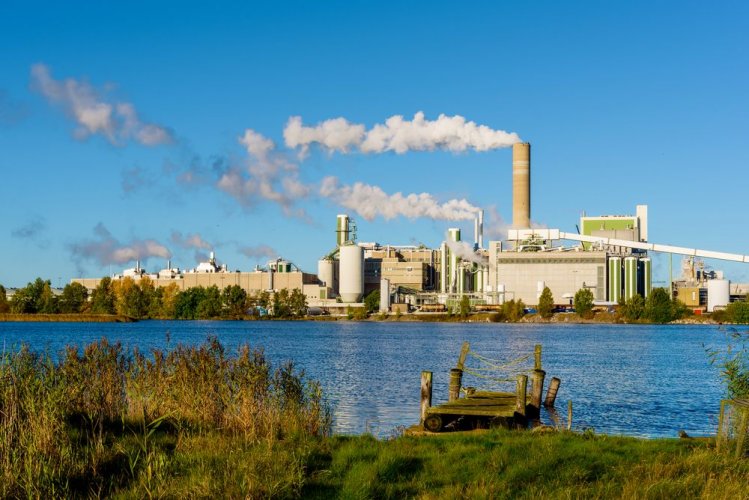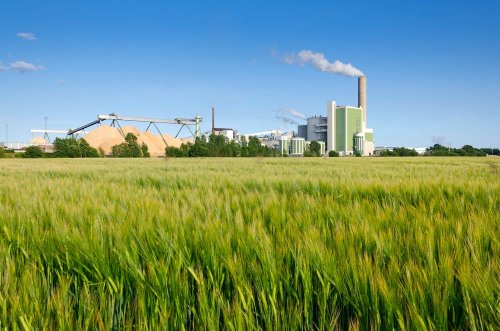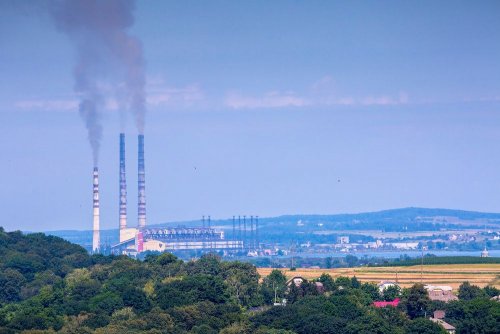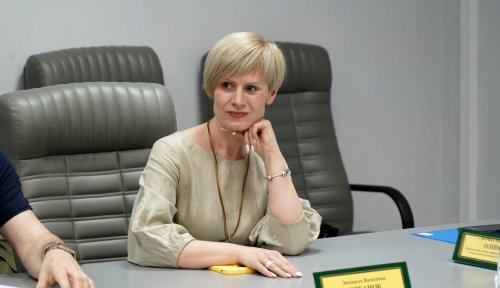The law on reforming the Ukrainian sphere of industrial pollution to European standards was one of the most anticipated documents both among environmental experts and among ecoactivists and public organizations dealing with environmental protection issues. But the draft law, voted by the Verkhovna Rada only on the second attempt, turned out to be so inconsistent with the Ukrainian realities of today that stakeholders called it a "time bomb."
This is probably one of the most high-profile environmental European integration bills that have been considered by the Verkhovna Rada over the past two years. This is already the fourth document prepared by the legislators regarding the reform of the field of industrial pollution in Ukraine.
Earlier, we already talked about the fact that, according to the unanimous opinion of experts, there are 3 critical reservations regarding draft law No. 11355: unrealistically short deadlines for enterprises to carry out eco-modernization, lack of tools and sources of financing for industrial modernization, as well as complete detachment from the realities of wartime and state economy after 2.5 years of war.
Risk factors
EcoPolitic summarized all the opinions of experts that she heard regarding draft law No. 11355 "On integrated prevention and control of industrial pollution". As a result, we decided to reveal 2 more key factors that will turn any reform into a mission impossible:
- lack of professionally prepared regulatory and legal documentation for the framework law,
- lack of specialists capable of implementing these changes.
And the reform of industrial pollution is no exception.
President of the Association of Environmental Professionals Lyudmila Tsyganok comments for our publication warned :
" Here it is necessary to understand so that there is no mess like with the framework law on waste management. When the framework was adopted, no one saw the regulatory documentation. By the way, we also do not see the entire legal framework for this draft law. Therefore, the movement of this reform may seem quite blind."
Separately, the specialist emphasized that the reform is not the text of the law, because there is too little of it. She noted that the reform is both a complete set of normative legal acts and a financing program.
A similar thought expressed Iryna Chernysh, head of the NGO "Save Dnipro":
"We must very clearly monitor how secondary legislation, i.e. by-laws, will be developed."
Experts also expressed fears that the transformation of the field of industrial pollution management could become another reform in a hurry, as we have already seen on the example of the restructuring of the waste management industry. Thus, after the entry into force of Law No. 2320-IX "On Waste Management" on July 9, 2023, the Ministry of Environment, headed by Ruslan Strilets, did not ensure the development and adoption of the necessary by-law regulatory documentation for it. This caused the collapse of the hazardous waste management services market at the beginning of January this year, and on July 9, 2024, left 99.7% of household waste management service providers outlawed.
Specialists were forced to once again draw the attention of officials and the public to the catastrophic situation with obtaining permits of a new type for the implementation of waste processing operations. They stated that a year after the Law entered into force, 90% of its norms are simply dead.
Therefore, EcoPolitic decided to find out whether the long-suffering draft law on industrial pollution control will suffer the same fate as Law No. 2320-IX "On Waste Management".
Without which documents the reform of industrial pollution is impossible
Directive 2010/75/EU, with the orientation of which draft law No. 11355 was developed, for the most part provides for the implementation of European best available technologies and management methods (BTM) into Ukrainian legislation. Implementation of the concept of BTM plays a major role during the application of an integrated approach to pollution regulation.
They are developed for each branch of industry separately and set emission standards. According to them, the standards will already be European, which are significantly lower than those currently in force in Ukraine.
The draft law allocates 4 years for the development and implementation of BTM norms. And here the success of their introduction depends on 2 factors:
- whether the Ministry of Environment will have time to adapt these documents in time;
- whether enterprises will have time to implement them.
We asked the Ministry of the Environment what percentage of BTM, which are provided for by draft law No. 11355, are already ready. The department said that the translation of 10 reference documents of the National Mining and Mineral Resources is ready, which can be read at websites ministries But it is not clear why the translation of European documents of BTM is presented to us as progress or reform of industrial pollution.
The specialists of the ministry spoke about the creation of 6 working groups for the preparation of proposals for the conclusions of the BTM, which included representatives of state bodies, businesses, scientists, experts, and at which the reference documents of the BTM are actively discussed and their translation is finalized in terms of harmonizing technical terminology, since the terminology of the European Union differs from Ukrainian.
At the same time, 3 working groups have already completed the primary task of finalizing the translation of reference documents of BTM, in particular: 1. For the production of iron and steel; 2. For non-ferrous metallurgy enterprises; 3. For the production of cement, lime and magnesium oxide. According to our data, meetings and discussions in working groups were formal and fundamentally different from the open and expert dialogue that took place by analogy in individual countries of the European Union.
The Ministry of Environment added that they continue to work on finding opportunities to translate other reference documents and conclusions of the BTM.
And now we look at current list of BTM (English Best available techniques — BAT), published on the website of the European Commission. It contains 36 items. Of them, the ministry has fully adapted only three at this moment, although work has been ongoing since 2022. That is, in three years with the help of foreign projects and grants and with the involvement of the expert community and all possible forces, the Ministry of Environment works with the efficiency of 1 BTM per year.
Olha Semkiv, director of the sustainable development project of PJSC "ArcelorMittal Kryvyi Rih", in a comment for EcoPolitics, noted that the BTM is a "living" document that is reviewed and regularly updated in the European Union, taking into account the development of technologies and their cost.
"Environment, together with international technical assistance projects, provided the translation of the main BTM dated 2012 for metallurgical enterprises. However, the process of updating this document is currently being completed in the EU. Accordingly, even the work on coordinating the translation needs to be started again," she said.
Separately, the specialist emphasized that translation is only the first stage of implementation. Since Ukraine is not a part of the EU, acts of direct effect must be implemented into Ukrainian legislation, i.e. go through all the regulated stages of approval of a normative legal act.
"Secondly, even the approved BTM is not a measure of readiness for its implementation by Ukrainian enterprises. Unfortunately, currently and until the end of the war, the implementation of large-scale capital investment projects, including ecological modernization, remains in question due to completely objective reasons", stated Olga Semkiv.
Director General of the "Center for Ecology and Development of New Technologies" Vladislav Antipov as well emphasized on the unwillingness of domestic enterprises to introduce the best available technologies and management methods.
In his opinion, the mining and metallurgical complex, energy and cement industry have the biggest risks that BTM will not be implemented on time. The expert explained this by the fact that these industries have very complex production chains, large-scale project and construction works, and also require the most valuable and modern technological solutions.
"It is also important that a large enterprise cannot implement a single project that will solve all problems. It is necessary to create entire investment programs for the transition to BTM, which will include dozens of projects. If smaller industries can implement investment projects for environmental modernization in 1-2 years, large enterprises may need from 10 to 20 years to implement such programs," says Vladislav Antipov.
And are there specialists?
Now with regard to the second risk factor, that is, the presence of specialists who are able to prepare the entire mentioned bylaw.
The Ministry of Environment responded to our request with general phrases that they have a relevant department in the structure, which is responsible for the reform of industrial pollution prevention, and that in the future there is a need to increase the number of people responsible for the implementation of the reform.
Ludmila Tsyganok to our question about the ability of the relevant ministry to implement industrial pollution reform spoke out quite categorically: she is sure that the Ministry of Environment is not ready to implement any reforms at all.
"I have to state the extremely low level of qualification of the available staff, the extremely low level of down-to-earthness, i.e. understanding how these reforms are implemented in general, how it works on the ground and the reluctance to build a real dialogue. That is, there is an imitation of this dialogue, but there has been no real dialogue for more than 2 years," she said.
Therefore, the risks of non-implementation are enormous, Lyudmila Tsyganok is sure.
"I can safely predict now: if there are no real steps to correct this situation, along with the reform of the waste management sector, this reform may also be in jeopardy, precisely because of the low level of qualifications and the lack of personnel. In fact, there are very few specialists, everyone understands this. Information about the insufficient staffing of the teams is available in the official letters of the Ministry of Environment. Accordingly, reforms are taking place chaotically and this discredits Ukraine in the international arena," the expert added.
Olha Semkiv, in a comment for EcoPolitics, also noted that there are competent specialists in the field of industrial pollution in Ukraine, but additional resources and expert support are needed for the full implementation of a reform of this scale. According to the expert, the unstable situation in the country makes it much more difficult to attract the required number of specialists.
"The outflow of personnel caused by the security situation is another significant challenge that negatively affects the possibility of implementing reforms. In addition, it is necessary to take into account that the successful implementation of reforms requires not only the presence of specialists, but also the creation of appropriate conditions for their work, which requires stable financing, access to the latest technologies and scientific knowledge, as well as established cooperation between state institutions, enterprises and international organizations," she said.
The conclusion suggests that the Ministry of Environment, headed by Ruslan Strilets, is very slow in adapting European BTM and does not want to cooperate with specialists who constantly offer their help. All the participants in the discussions state the incompetence and closed nature of the relevant ministry for cooperation in carrying out environmental reforms. Behind the good announcements about the ministry's successes and achievements, which flooded Facebook and various media, lies low institutional capacity and lack of European integration progress.
Therefore, we are forced to admit that, most likely, we will not see a progressive European future with such "reformers" for a long time.





